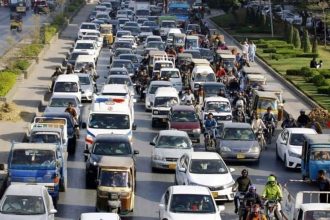Venezuelan President Nicolas Maduro, whose tenure has faced severe economic and social crises, took the oath for a third term on Friday amid a six-month election dispute, international demands for his resignation, and a higher US reward for his capture.
Maduro, who has held power since 2013, emerged as the declared winner of the July election according to Venezuela’s electoral authority and the Supreme Court. However, they have not released detailed results.
The opposition asserts that ballot box tallies indicate a clear victory for their candidate, Edmundo Gonzalez. Several countries, including the United States, recognize Gonzalez as the president-elect. International observers have decried the election process as undemocratic.
Following the election, Gonzalez fled to Spain, his ally Maria Corina Machado went into hiding, and authorities detained several opposition figures.
#UPDATE The United States hiked its reward for information leading to Venezuelan President Nicolas Maduro's arrest to $25 million, saying his swearing-in was illegitimate after he clearly lost last year's election.https://t.co/rSlI8Az8u5
— AFP News Agency (@AFP) January 10, 2025Recently, the outgoing Biden administration raised the bounty for Maduro’s capture from $15 million to $25 million due to drug trafficking charges. It also placed a $25 million reward on Interior Minister Diosdado Cabello and a $15 million reward on Defense Minister Vladimir Padrino, adding sanctions against eight other officials, including PDVSA head Hector Obregon.
The US, UK, EU, and Canada have imposed sanctions targeting Venezuelan officials, alleging corruption and election fraud. Maduro dismisses these as illegitimate, claiming they wage an economic war against Venezuela.
During his inauguration, Maduro vowed to pursue peace, prosperity, and constitutional reform, asserting that Venezuela remains peaceful and sovereign. Two thousand guests from 125 countries attended the ceremony, including allies from Cuba, Nicaragua, and Russia.
US announces $25m reward for the arrest or conviction of Nicolas Maduro on the day he is sworn in as president of Venezuelahttps://t.co/uzFFP0wWkp
— BBC Breaking News (@BBCBreaking) January 10, 2025Concurrently, Venezuela’s economic crisis persists, with triple-digit inflation and over 7 million emigrants. The opposition and international bodies have long condemned the repression of dissent in Venezuela.
US President-elect Donald Trump labelled Maduro a dictator, while the Venezuelan government accused the opposition of colluding with foreign entities like the CIA to undermine it.
This week, the government claimed to have caught seven “mercenaries,” including US officials, as Maduro announced economic growth and a partial release of detained protesters.
Maduro’s narrative included a mention of his son-in-law’s recent kidnapping, highlighting ongoing national tensions.






